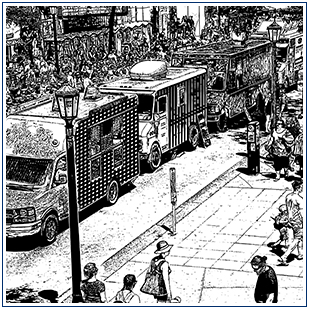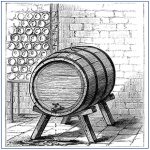Reducing Risk of Liability in Food Truck Operations
There are several things you can do to reduce the risk of liability in your food truck operations. First, you might want to review your corporate documents to make sure everything is in order. Secondly, a thorough overview of client operations is a great idea.
Laura Collier, Esq. is a food & beverage attorney based in Raleigh, North Carolina. Laura is a longtime member of the food & beverage industry, including experience working with wine & beer retail, restaurants, alcohol distribution, and event planning.
In this CLE clip, Laura discusses reducing risk of liability in food truck operations.
Also, review trademarks, from the name you are doing business under, to any specialty named menu items that you have developed are something you will want to have tradmarked. Being a good member of the food & beverage community is another great way to improve your business operations, as these organization have an excellent knowledge base for you to draw from.
When reviewing your corporate documents there are a few questions you want to ask yourself. Have you formed a legal entity for your business operations, such as incorporating? Do you have a specific operating agreement, or bylaws with which you operate? How are your business assets held? How are contracts being signed with supporting vendors, locations, and employees? Lastly, do you have the proper insurance required to operate in the locations you’ve chosen?
Developing your procedures and policies is an important first step. This is where you define your daily functioning procedures, from owners to employees, you will want these daily duties spelled out in detail. Furthermore, you will want to establish a working schedule, so your staff has adequte cooking time between shifts.
Employee training is another important part of your daily operations. You will need to ensure your staff knows safe food preparations methods, and how to safely use the equipment. A commercial drivers license is required for all staff who will be responsible for driving the food truck in many municipalities. For alcohol sales, you will need to apply for special licensing in the state that you wish to operate in, and in some instances laws differ from county to country.








